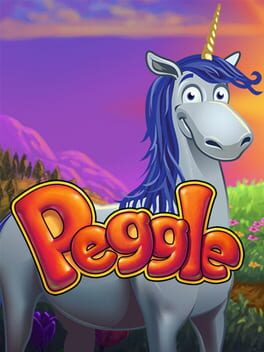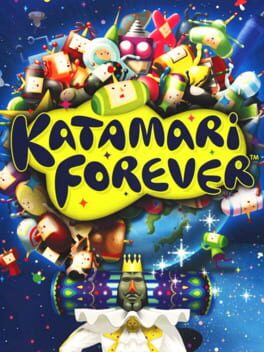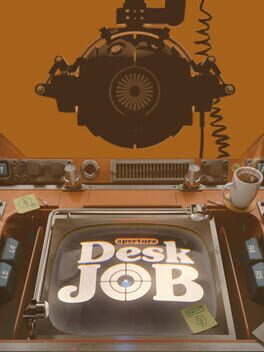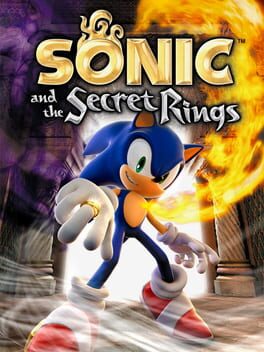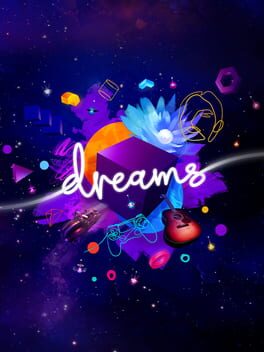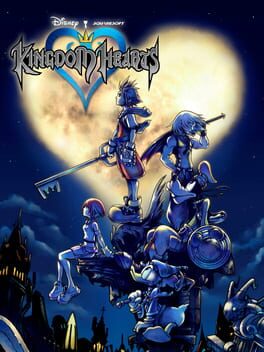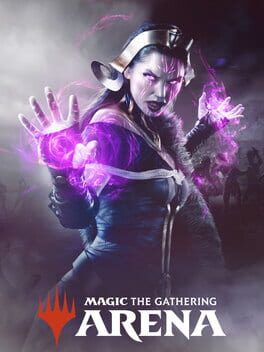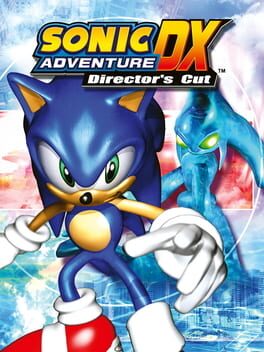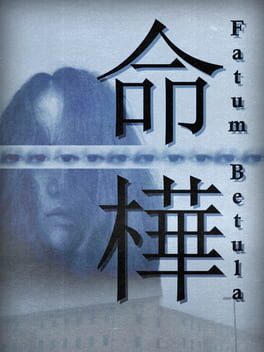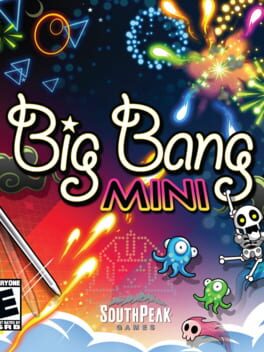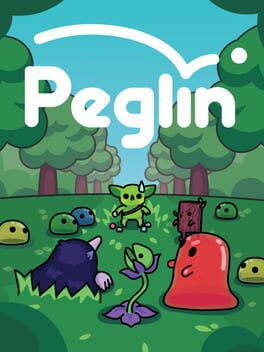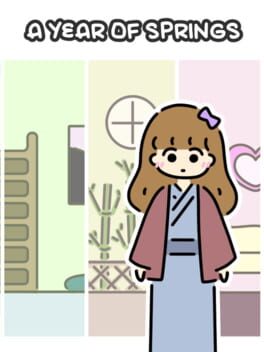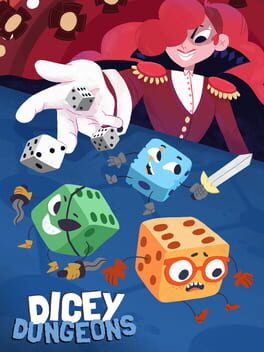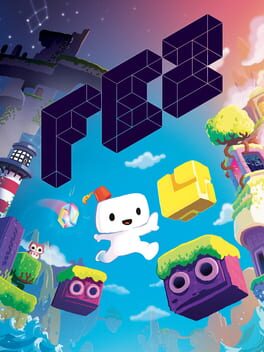homefires
2007
I was replaying this again recently and it really struck me how well the scoring system is tied into the main gameplay. you can get extra shots by scoring highly, and your score multiplier increases as you clear orange pegs, so you engage with the score mechanics naturally as you play. do you want to prioritize orange pegs to move towards beating the level and increasing your multiplier, or improve your chances of a free ball by targeting the roaming purple peg? what about the master ability that's available currently, should it be used early in the level to help clear pegs or later on to gain extra shots from a high score? is it worth it to avoid clearing a section of normal pegs until your multiplier is higher?
the score system changes the importance of the different peg types over the course of a level, which adds a lot of decision making and increases the skill ceiling, allowing levels to be difficult without feeling unfair or too RNG heavy. naturally having a higher multiplier later on makes later shots feel more important, which helps keep the game exciting. I don't replay most games frequently but I'm always coming back to peggle because it's so consistently fun and replayable, and I think that's because it's actually really well designed! rest in peace old PopCap, they don't make em like they used to...
the score system changes the importance of the different peg types over the course of a level, which adds a lot of decision making and increases the skill ceiling, allowing levels to be difficult without feeling unfair or too RNG heavy. naturally having a higher multiplier later on makes later shots feel more important, which helps keep the game exciting. I don't replay most games frequently but I'm always coming back to peggle because it's so consistently fun and replayable, and I think that's because it's actually really well designed! rest in peace old PopCap, they don't make em like they used to...
2009
can be a nice way to play some levels from some great games! as long as you don't mind worse performance and worse object pop-in and worse balance due to new mechanics and worse writing. there's some pros here like a new game+ "go really fast" mode and like 2 new levels, but hardly anything essential even if you're a fan of the series. the remixed soundtrack has some highlights but feels less consistent to me compared to the PS2 entries in the series.
it's also a little off-putting to me that it doesn't really seem to advertise that it's more of a level remix/repack than a full new game? maybe I'm being unfair or maybe I'm missing something but nothing on the game's case really indicates that fact. when I picked this up at a retro gaming store I was under the impression that it was brand new stuff like the xbox 360 one, so it was a bit disappointing to figure out that wasn't the case.
well it's still katamari anyways, so it's still fun. not much of a point in seeking this out now that the modern HD ports exist. maybe listen to the soundtrack on youtube?
it's also a little off-putting to me that it doesn't really seem to advertise that it's more of a level remix/repack than a full new game? maybe I'm being unfair or maybe I'm missing something but nothing on the game's case really indicates that fact. when I picked this up at a retro gaming store I was under the impression that it was brand new stuff like the xbox 360 one, so it was a bit disappointing to figure out that wasn't the case.
well it's still katamari anyways, so it's still fun. not much of a point in seeking this out now that the modern HD ports exist. maybe listen to the soundtrack on youtube?
2024
This has several qualities of "roguelike stink" like endless incremental unlocks, lootbox gameplay, and chase items. However it also has a good set of base mechanics, engaging amounts of decision making, and interesting twists that can make runs feel varried. I understand the complaints about this being designed in a way that's addictive, but as a game that you buy once I can't really imagine equating it to gambling/gacha/microtransactions/etc. Not even close to the worst this genre has to offer (vampire survivors) but also nowhere near the best (binding of Isaac)
Currently using it as a time travel device as I'm stuck in my room waiting out covid. Engaging enough to not get bored of it easy, not so fast paced that I get overwhelmed. Sometimes games find you at the perfect time
Currently using it as a time travel device as I'm stuck in my room waiting out covid. Engaging enough to not get bored of it easy, not so fast paced that I get overwhelmed. Sometimes games find you at the perfect time
2022
this plays it so safe that I'm not sure why they even bothered making it. gyro aiming is not what I'm here for, that's not exactly new or exciting anymore. the touchpads are easily the most unique aspect of the hardware and they barely get utilized. it's the one thing that's unfamiliar enough to need a tech demo as an introduction to its possible uses! did they hold back to make it easily playable on desktops?
one of the first things I did when I got this thing was play peggle nights, a game from 2008 that lacks conventional controller support. that's the sort of thing that excites me about the steam deck as a mobile console, but it's not a feature you can really convey through a tech demo game like this. it's fine enough as a short little experience and it has fun moments but it's not memorable as a game.
considering this game doesn't have much purpose as an introduction to the steam deck, its status as a portal game is really the biggest reason to check it out. it doesn't really have me convinced though? it's very blatant portal 2 fan service that doesn't have much of its own to bring to the table. sure it's short by nature, but what little is here is just really hit or miss for me.
portal 2 was at its best when it was allowing you to interact with the game as dialogue played out. it's fun to let the quips wash over you as you puzzle about. even when there's no immediate way to progress you get to move around, or at least look around, it helps you get immersed and connect with situation. there's a few moments in desk job where you just have to sit and wait for a voice line to play out and you just kind of have to sit there and endure it. you can't really do anything other than fidget with your desk. it makes it a lot easier find annoyance in the writing. maybe this is just a me problem, but the experience was like getting strapped to a chair and forced to listen to a mediocre stand-up routine performed by a tired burnout who doesn't seem totally convinced by his own jokes. less talking at you and more talking for you? saw other people say it was classic valve writing so maybe I'm out of line here. I did like some of it. the cave johnson bit was pretty good.
but yeah I don't feel cheated for playing a free game for 30 minutes or anything, but I am a bit disappointed. in comparison valve's vr lab game was a pretty good introduction to the tech and had a lot of charm, I guess it got my hopes up a bit too much
one of the first things I did when I got this thing was play peggle nights, a game from 2008 that lacks conventional controller support. that's the sort of thing that excites me about the steam deck as a mobile console, but it's not a feature you can really convey through a tech demo game like this. it's fine enough as a short little experience and it has fun moments but it's not memorable as a game.
considering this game doesn't have much purpose as an introduction to the steam deck, its status as a portal game is really the biggest reason to check it out. it doesn't really have me convinced though? it's very blatant portal 2 fan service that doesn't have much of its own to bring to the table. sure it's short by nature, but what little is here is just really hit or miss for me.
portal 2 was at its best when it was allowing you to interact with the game as dialogue played out. it's fun to let the quips wash over you as you puzzle about. even when there's no immediate way to progress you get to move around, or at least look around, it helps you get immersed and connect with situation. there's a few moments in desk job where you just have to sit and wait for a voice line to play out and you just kind of have to sit there and endure it. you can't really do anything other than fidget with your desk. it makes it a lot easier find annoyance in the writing. maybe this is just a me problem, but the experience was like getting strapped to a chair and forced to listen to a mediocre stand-up routine performed by a tired burnout who doesn't seem totally convinced by his own jokes. less talking at you and more talking for you? saw other people say it was classic valve writing so maybe I'm out of line here. I did like some of it. the cave johnson bit was pretty good.
but yeah I don't feel cheated for playing a free game for 30 minutes or anything, but I am a bit disappointed. in comparison valve's vr lab game was a pretty good introduction to the tech and had a lot of charm, I guess it got my hopes up a bit too much
2020
I have a lasting interest in game creation platforms like this, but also in games as smaller scale experiences. I grew up spending a lot of time with Roblox and the Little Big Planet series, but also with flash games. The possibility of making things yourself, and of other people seeing those things is really cool! Playing other people's little projects, flaws and all, has always felt more intimate to me. I would argue that smaller games make a better case for "games as art" than any big budget M rated drama made to mimic prestige television.
The home of those kinds of games has really shifted over time, though. I don't want to get too negative here, but it's really sad to me to see platforms like have Flash died or how the mobile game market has shifted to prioritize games that are engineered to be addictive and profitable.
To me Dreams represents that long gone world from my adolescence. A place to share what you've made, and to be entertained and inspired by what other people have made. It's incredible the things people have made in it! Some of them are really good and stand separate from the Dreams platform, and others are pretty terrible! Both categories have their place here. It isn't perfect as a platform, and it retains some of the social media type elements that also affected the Little Big Planet series. "Remakes" and fandom content tend to be popular and get perpetuated since they inherently have a wider audience. I might be in the minority here but I find it really interesting to see how the structure of a platform like this can affect the sorts of things people make. I like playing all sorts of things here for that reason alone, regardless of quality! It's a little ecosystem and I find that just as engaging as the actual games. I could talk forever about aspects of the community and the game itself that I find interesting, or even just about specific games, but I'm not very good at writing and there's just too much to cover!
If you're interested in video games as a medium and as a vehicle for self expression, I would highly recommend giving Dreams a shot. It's not doing something new, but it's easily the best of its kind.
The home of those kinds of games has really shifted over time, though. I don't want to get too negative here, but it's really sad to me to see platforms like have Flash died or how the mobile game market has shifted to prioritize games that are engineered to be addictive and profitable.
To me Dreams represents that long gone world from my adolescence. A place to share what you've made, and to be entertained and inspired by what other people have made. It's incredible the things people have made in it! Some of them are really good and stand separate from the Dreams platform, and others are pretty terrible! Both categories have their place here. It isn't perfect as a platform, and it retains some of the social media type elements that also affected the Little Big Planet series. "Remakes" and fandom content tend to be popular and get perpetuated since they inherently have a wider audience. I might be in the minority here but I find it really interesting to see how the structure of a platform like this can affect the sorts of things people make. I like playing all sorts of things here for that reason alone, regardless of quality! It's a little ecosystem and I find that just as engaging as the actual games. I could talk forever about aspects of the community and the game itself that I find interesting, or even just about specific games, but I'm not very good at writing and there's just too much to cover!
If you're interested in video games as a medium and as a vehicle for self expression, I would highly recommend giving Dreams a shot. It's not doing something new, but it's easily the best of its kind.
2002
Trying to explain to my friends why this game is so compelling to me makes me feel like I'm going insane. On the surface it can look a bit rough, so it's hard to describe exactly what I see in it. It's a coming of age story, which isn't exactly uncommon, but the way it communicates the hostility of the world and the drifting of old friendships from a kid's perspective really resonates with me. Growing up is confusing, the world can feel hostile, and at the end of the day you might not have the chance to return to what you thought of as home. The way it's told can sometimes be a bit stilted and campy to the point of losing its charm (darkness, light, heart, key, etc), but the music, visual design, and gameplay all come together to make it work anyways. The Disney stuff walks a fine line between supporting that tone perfectly or destroying it in favor of brand recognition.
Beyond all of that, it's just really fun to play! This is peak PS2 era platforming level design! Playing through these worlds genuinely feels like exploring, even if it's a bit too easy to get lost in some of them. They're also just really fun places to fight in. The combat system is simple but engaging. There's a crazy amount of enemy variety and a steady progression of new abilities and items that keep it fresh throughout. The camera is your enemy more often than not (my fault for playing the original, I guess) and I really dislike the flying/swimming sections but any further complaints feel like nitpicks.
As a kid I only played Kingdom Hearts 2, so I didn't really know what to expect when I started playing this one in preparation for returning to 2. I enjoyed it way more than I expected! Not life changing like it might've been if I had played it when I was 10, but still very fun and touching. It definitely deserves to be revisited and remembered.
Beyond all of that, it's just really fun to play! This is peak PS2 era platforming level design! Playing through these worlds genuinely feels like exploring, even if it's a bit too easy to get lost in some of them. They're also just really fun places to fight in. The combat system is simple but engaging. There's a crazy amount of enemy variety and a steady progression of new abilities and items that keep it fresh throughout. The camera is your enemy more often than not (my fault for playing the original, I guess) and I really dislike the flying/swimming sections but any further complaints feel like nitpicks.
As a kid I only played Kingdom Hearts 2, so I didn't really know what to expect when I started playing this one in preparation for returning to 2. I enjoyed it way more than I expected! Not life changing like it might've been if I had played it when I was 10, but still very fun and touching. It definitely deserves to be revisited and remembered.
Great way to play draft without being harassed by LGS regulars for being transgender.
Jokes aside, the strength of magic comes from the freedom. Play cube, play commander, play on the hard concrete. Play with proxies instead of supporting the insane secondary market. Arena doesn't allow for any of this. It's convenient and accessible but it's also rigid. Taking out the social element can be a positive or a negative (my opening statement wasn't exactly a joke), but it kills the soul of the game in the end. The game as a system is incredible, but Arena is very enclosed. They want you to play all the worst configurations because those are the most profitable ones.
So yeah the monetization sucks really hard, but the same of true of the game overall. The cards come in Booster Packs™ for fucks sake. I've heard people say they don't like Arena because you can't resell cards like you can in real life. I've seen people buy entire display boxes of packs because it's "good average value". I like the game as a game, but as a product I've always thought it's a bit of a nightmare. I don't like what it does to people. Arena isn't really any better or worse, just different.
When the stars align and you end up playing a good format without feeling like you've been robbed, it's really incredible. That is also true of Arena. A lot of recent sets have been incredible for drafting, and I had a stretch some years ago where I was really enjoying Historic. Even so, without a group of friends to mutually enable each other, it's hard to continue to justify. Arena doesn't have that sense of community. Those stars won't align consistently.
Over the course of life I've lost the community that used to support this game that I love, so Arena feels like the only option left. It's a good adaptation of the paper game from a business perspective, but not beyond that. It captures fleeting moments of that enjoyment but they feel hollow. I wish I didn't feel so cynical about it all, because I really do love playing Magic. The "playing" part is the only part that doesn't leave a bad taste in my mouth.
Jokes aside, the strength of magic comes from the freedom. Play cube, play commander, play on the hard concrete. Play with proxies instead of supporting the insane secondary market. Arena doesn't allow for any of this. It's convenient and accessible but it's also rigid. Taking out the social element can be a positive or a negative (my opening statement wasn't exactly a joke), but it kills the soul of the game in the end. The game as a system is incredible, but Arena is very enclosed. They want you to play all the worst configurations because those are the most profitable ones.
So yeah the monetization sucks really hard, but the same of true of the game overall. The cards come in Booster Packs™ for fucks sake. I've heard people say they don't like Arena because you can't resell cards like you can in real life. I've seen people buy entire display boxes of packs because it's "good average value". I like the game as a game, but as a product I've always thought it's a bit of a nightmare. I don't like what it does to people. Arena isn't really any better or worse, just different.
When the stars align and you end up playing a good format without feeling like you've been robbed, it's really incredible. That is also true of Arena. A lot of recent sets have been incredible for drafting, and I had a stretch some years ago where I was really enjoying Historic. Even so, without a group of friends to mutually enable each other, it's hard to continue to justify. Arena doesn't have that sense of community. Those stars won't align consistently.
Over the course of life I've lost the community that used to support this game that I love, so Arena feels like the only option left. It's a good adaptation of the paper game from a business perspective, but not beyond that. It captures fleeting moments of that enjoyment but they feel hollow. I wish I didn't feel so cynical about it all, because I really do love playing Magic. The "playing" part is the only part that doesn't leave a bad taste in my mouth.
the Ice Cap level for Big the Cat is maybe one of the worst levels in gaming history and I don't say that lightly. if you don't manage to notice that some patches of ice have a slightly different texture to show they can be broken, you're boned. you will wander the frozen hellscape endlessly. you can't jump out of water. the camera is your enemy. good luck figuring out that there's a powerup hidden underwater somewhere that's basically required to progress. if you die in the game you die in real life. if real art is supposed to make you feel, then I guess this qualifies because it made me feel like I had a hangover. this shit should be studied in a lab
the rest of the game is pretty good though
the rest of the game is pretty good though
2020
This review contains spoilers
This game is inspiring to me. There's a secret ending you can get by climbing some geometry and escaping the map. The fourth wall is broken, and the developer speaks to you directly. Throughout the dialogue leading to the ending along with the ending itself, the game's atmosphere gets stripped back. The levels are shown from the editor, all immersion removed. The dev talks on it all very casually, maybe a bit awkwardly. He mentions that he's a bit insecure about the writing but it's clear he didn't compromise his ideas. He made the game he wanted to make, he had some things he wanted to say.
Including this kind of thing in a game that's so focused on atmosphere and immersion is kinda wild, but I'm very glad that it's there. Seeing everything stripped back shows the game's strengths. It's not a very large or complex game, but it doesn't need to be. It shows just how effective all of the retro graphical effects can be, how far a good soundtrack can go. Revealing all this puts the game in a vulnerable position with the potential to spoil the magic, but for me it only deepened my connection to it. I would argue this ending fits in very well with the rest of the game and serves its themes just as well as the others.
I have a difficult time making any kind of art despite a deep desire to do so. Anything I do make I tend to not show to anyone. I'm scared to present myself to the world, to put myself in a situation where my beliefs and skill are being analyzed. I'm trying to be better but it's a difficult process. Seeing this game present itself so plainly from an outside perspective is inspiring. Putting yourself into your work is very personal, but I think it's essential for making something meaningful.
Including this kind of thing in a game that's so focused on atmosphere and immersion is kinda wild, but I'm very glad that it's there. Seeing everything stripped back shows the game's strengths. It's not a very large or complex game, but it doesn't need to be. It shows just how effective all of the retro graphical effects can be, how far a good soundtrack can go. Revealing all this puts the game in a vulnerable position with the potential to spoil the magic, but for me it only deepened my connection to it. I would argue this ending fits in very well with the rest of the game and serves its themes just as well as the others.
I have a difficult time making any kind of art despite a deep desire to do so. Anything I do make I tend to not show to anyone. I'm scared to present myself to the world, to put myself in a situation where my beliefs and skill are being analyzed. I'm trying to be better but it's a difficult process. Seeing this game present itself so plainly from an outside perspective is inspiring. Putting yourself into your work is very personal, but I think it's essential for making something meaningful.
2009
Super underrated. A simple but effective example of how the DS inspired mechanical innovation and led to unique experiences that can't be found elsewhere.
The game's touch based control scheme not only makes it distinct, but actually fits the genre super well. Carefully navigating a maze of bullets feels great when you have the precise control of the stylus to move your ship with. I first played this as a kid and I don't think I would've been able to get into it without the accessibility that the touch controls provided. Shooting also feels great, there's a simple joy to swiping the screen to fire off your shots. The added risk of missed shots exploding into more bullets to avoid encourages you to slow down and be careful about it though. It can be easy to move when you meant to shoot and vice versa, so the system isn't perfect, but I don't really mind considering how consistently fun it is.
Each world not only has different mechanics, but a totally separate art style as well. The aesthetic of it reminds me of flash games, and I mean that in a super positive way! Levels are short enough to not be frustrating but long enough to not be trivially easy. There's some pretty difficult stuff in the late game though. The bosses are all pretty unique and memorable as well.
I'm not super familiar with the genre that inspired this but I'd easily recommend it to fans of shmups or to DS enthusiasts. It's a shame it seems to be mostly forgotten.
The game's touch based control scheme not only makes it distinct, but actually fits the genre super well. Carefully navigating a maze of bullets feels great when you have the precise control of the stylus to move your ship with. I first played this as a kid and I don't think I would've been able to get into it without the accessibility that the touch controls provided. Shooting also feels great, there's a simple joy to swiping the screen to fire off your shots. The added risk of missed shots exploding into more bullets to avoid encourages you to slow down and be careful about it though. It can be easy to move when you meant to shoot and vice versa, so the system isn't perfect, but I don't really mind considering how consistently fun it is.
Each world not only has different mechanics, but a totally separate art style as well. The aesthetic of it reminds me of flash games, and I mean that in a super positive way! Levels are short enough to not be frustrating but long enough to not be trivially easy. There's some pretty difficult stuff in the late game though. The bosses are all pretty unique and memorable as well.
I'm not super familiar with the genre that inspired this but I'd easily recommend it to fans of shmups or to DS enthusiasts. It's a shame it seems to be mostly forgotten.
2022
2021
The differences in simple mechanics for each story perfectly reflect whichever character you're playing as at the moment. It's simple but incredibly effective and only serves to characterize the trio and invest you in them.
Beyond that it's just really refreshing to see queer people portrayed in a way that feels so honest and relatable. I need to play more stuff like this, I owe it to myself.
Beyond that it's just really refreshing to see queer people portrayed in a way that feels so honest and relatable. I need to play more stuff like this, I owe it to myself.
2019
A better puzzle game than a roguelike. Often found myself wishing each episode was deterministic, maybe with an optional randomized mode set separately. The mechanics and systems here are really fun but it gets dragged down by forced replays due to poor luck. Could it be argued this is intentional due to the game's story? Maybe but I don't think it excuses it either way. Some other "tactical" type roguelikes like Slay The Spire always feel beatable in practically every scenario due to the variety of options and opportunities to squeeze everything out of what you're given. That was absolutely not the case here. Despite the mechanical depth it felt like options were usually limited, which is why I compare it more to a puzzle game in terms of its strengths.
The dev did a thread on the development of the reunion episodes that I found quite engaging. It's clear that a lot of thought and care went into this. It's still very fun and has a ton of creativity packed into it! It's a shame that the core concept is at odds with the execution.
The dev did a thread on the development of the reunion episodes that I found quite engaging. It's clear that a lot of thought and care went into this. It's still very fun and has a ton of creativity packed into it! It's a shame that the core concept is at odds with the execution.
2012
Back when I first played this it took hold of my brain so tightly. On it's own it was a very solid puzzle platformer with great music and atmosphere, but the way it continued to open up and deepen in complexity was very captivating to me. It had an air of mystery around it that I still haven't totally seen replicated. I wish I still had my page of handwritten notes that I made when solving some of the more difficult late game puzzles.
There's something to be said about the actual puzzle content of the game, which is fun but lacks an amount of depth. For the most part I would consider the true appeal here to be the act of uncovering the game's hidden mechanics and searching for secrets, rather than pure puzzle solving. The late game secrets and puzzles range from simple once you know the trick, to horribly obtuse. This doesn't necessarily win it any points as a puzzle game, but it does serve to deepen the mystery of the game, which works in it's favor in the end. The notorious Monolith "puzzle" remaining unsolved would be easy to dismiss as bad design, but at the time it I played the game it only served to deepen the game's atmosphere and my investment in it. Overall, considering it's one of the main things that gets brought up in discussion around the game only shows how memorable it is.
Overall if you want a pure puzzle game there are better options. If you want a fun platformer with a lot of atmosphere and character, this still fills that niche very well. I have a very strong fondness for it and probably always will, and the experience of playing it makes up for any shortcomings it has.
There's something to be said about the actual puzzle content of the game, which is fun but lacks an amount of depth. For the most part I would consider the true appeal here to be the act of uncovering the game's hidden mechanics and searching for secrets, rather than pure puzzle solving. The late game secrets and puzzles range from simple once you know the trick, to horribly obtuse. This doesn't necessarily win it any points as a puzzle game, but it does serve to deepen the mystery of the game, which works in it's favor in the end. The notorious Monolith "puzzle" remaining unsolved would be easy to dismiss as bad design, but at the time it I played the game it only served to deepen the game's atmosphere and my investment in it. Overall, considering it's one of the main things that gets brought up in discussion around the game only shows how memorable it is.
Overall if you want a pure puzzle game there are better options. If you want a fun platformer with a lot of atmosphere and character, this still fills that niche very well. I have a very strong fondness for it and probably always will, and the experience of playing it makes up for any shortcomings it has.
